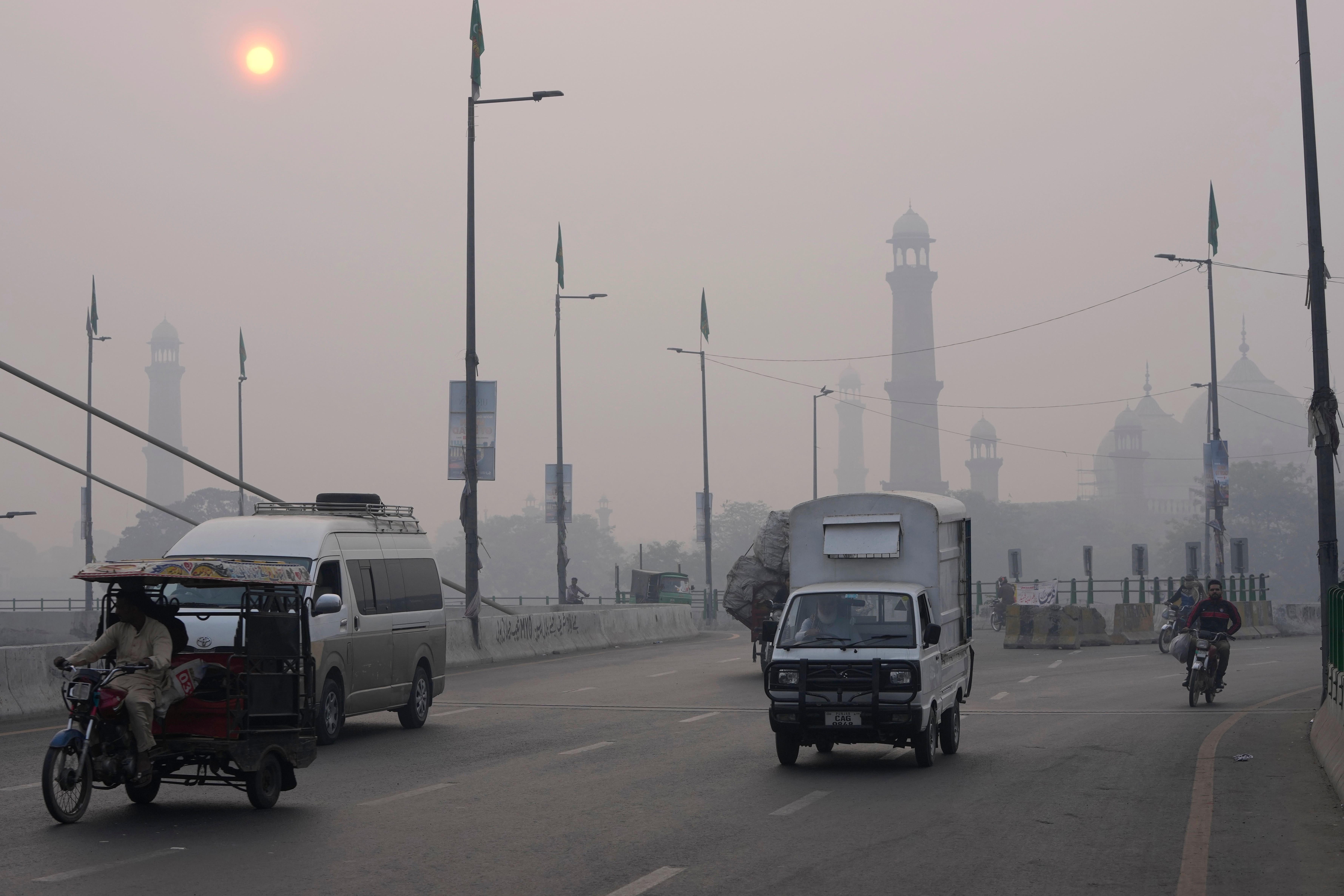Climate change could unravel decades of progress in human health, says WMO
Developing better early warning systems for extremes such as heat could help save more lives, scientists have said.

Your support helps us to tell the story
From reproductive rights to climate change to Big Tech, The Independent is on the ground when the story is developing. Whether it's investigating the financials of Elon Musk's pro-Trump PAC or producing our latest documentary, 'The A Word', which shines a light on the American women fighting for reproductive rights, we know how important it is to parse out the facts from the messaging.
At such a critical moment in US history, we need reporters on the ground. Your donation allows us to keep sending journalists to speak to both sides of the story.
The Independent is trusted by Americans across the entire political spectrum. And unlike many other quality news outlets, we choose not to lock Americans out of our reporting and analysis with paywalls. We believe quality journalism should be available to everyone, paid for by those who can afford it.
Your support makes all the difference.Climate change threatens to unravel decades of progress on improving human health through extreme heat, air pollution, disruption of food systems and the spread of disease, the World Meteorological Organisation (WMO) has said.
These effects will be strongest in Africa, where there is less monitoring of approaching extremes and which is projected to see 50% of the excess deaths from climate change in the future.
Across the world, less than a quarter of governments use climate data to monitor health risks such as extreme heat, which is the most deadly effect from the warming atmosphere, the WMO said.
Between 2000 and 2019, around 489,000 people are thought to have been killed by extreme heat, 45% of which happened in Asia and 36% in Europe.
Practically the whole planet has experienced heatwaves this year
It is estimated that in 2022 alone, more than 60,000 people died in Europe through the heatwaves, with over 3,000 of those in the UK.
Deaths from extreme heat are most likely to occur in Central and South America, southern Europe, southern and Southeast Asia and Africa, with estimates that there could be as many as 30 times more heat-related deaths if the global average temperature continues to rise.
The WMO’s state of climate services for health report, which over 40 organisations around the world helped put together, found that scientific knowledge and resources can help protect people against climate extremes, but this is not being sufficiently used.
Rising heat and the growing over-65 population has already led to a 68% increase in heat-related deaths for this age group between 2017 and 2021, compared to 2000 and 2004, according to a study in the Lancet Countdown on health and climate change.
WMO secretary-general Professor Petteri Taalas said: “Practically the whole planet has experienced heatwaves this year.
“The onset of El Nino in 2023 will greatly increase the likelihood of breaking temperature records further, triggering more extreme heat in many parts of the world and in the ocean – and making the challenge even greater.”
Heat also puts extra stress on agriculture along with drought and exacerbates air pollution, which the WMO considers the fourth leading risk factor of death – above obesity, cardiovascular disease and malnutrition – and contributes to seven million premature deaths each year.
Between 2012 and 2021, 29% more of the Earth’s land area was affected by drought for at least one month per year compared to the period between 1951 and 1960.
Worsening droughts and heatwaves mean there are 98 million more people across 103 countries reporting moderate to severe food insecurity in 2020 than during the years 1981-2010, the WMO said.
Diseases such as dengue fever are also spreading with the changing climate, and the length of the malaria transmission season has increased in some parts of the world.
The climate crisis is a health crisis, driving more severe and unpredictable weather events, fuelling disease outbreaks and contributing to higher rates of noncommunicable diseases
Scientists are almost certain that climate change will bring more injury, disease and death, with more intense and frequent temperature extremes, cyclones, storms, floods, droughts and wildfires.
By 2030, the number of medium or large-scale disasters is expected to reach 560 a year, or 1.5 each day on average.
Countries that do not have an adequate early warning system have people dying at a rate eight times higher than those with good coverage, the WMO said.
They added that climate information is fundamental to improving public health but warnings for extreme heat only cover around half of all countries.
Dr Tedros Adhanom Ghebreyesus, WHO director-general, said: “The climate crisis is a health crisis, driving more severe and unpredictable weather events, fuelling disease outbreaks and contributing to higher rates of noncommunicable diseases.
“By working together to make high-quality climate services more accessible to the health sector, we can help to protect the health and wellbeing of people facing the perils of climate change.”